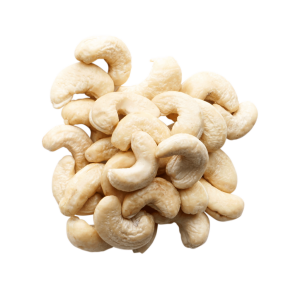An investigation of the bacteriological quality of ready-to-eat peanuts; almonds; cashews; hazelnuts; and Brazil nuts processed in two Australian nut-processing facilities was performed over a period of 3 years. A total of 564 ready-to-eat retail packs were analyzed for aerobic plate count (APC); Salmonella; coagulase-positive staphylococci; Listeria monocytogenes; and Escherichia coli. Of these samples; 343 were peanuts; 45 cashews; 42 almonds; 40 Brazil nuts; 51 hazelnuts; and 43 were mixed packs containing all five types. There was no Salmonella; E. coli; or coagulase-positive staphylococci detected in any sample. L. monocytogenes was detected in two of the mixed packs after enrichment; but was not detected from samples by an alternate enumeration method (detection limit = 10/g). The APC percentages of positive samples with counts above the detection level of the plating method used (100 CFU/g) for peanuts; almonds; cashews; hazelnuts; brazil nuts; and mixed nuts were 48%; 36%; 62%; 36%; 56%; and 44%; respectively. Of the samples containing more than this detection limit; the means were 2.7; 2.4; 2.4; 2.6; 2.8; and 2.7 log CFU/g; respectively. The maximum APC was 3.9 log CFU/g. The bacteriological quality of roasted peanut; almond; cashew; hazelnut; Brazil; and mixed nut kernels processed in Australian facilities does not appear to suggest a public health concern.
